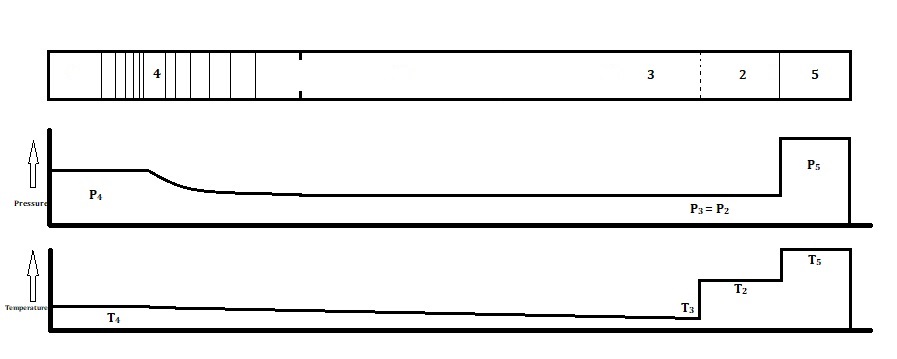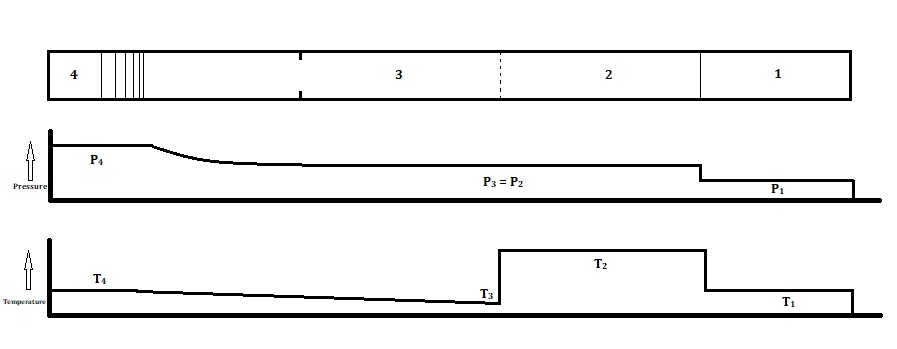Introduction
A shock tube is a device in which a normal shock is produced in a test gas to instantaneously raise the pressure and temperature of the test gas for a fixed amount of time. The effect of the rise on the test gas can be studied using optical and quantitative methods, such as gas chromatography. The test gas is often a very dilute mixture of a fuel to be tested in an inert gas. Chemically kinetic studies can be carried out on the fuel and reaction mechanisms can be obtained.
The shock tube is able to develop high pressure and high temperature using two separated section have a large difference of pressures. Quenching effect is given as a result of the expansion wave which is generated within the shock tube and tuning the shock tube configuration ins several helps obtain the test time of choice. The Shock Tubes at UIC are capable of developing pressures from 1 to 1000 atm in the test region with temperatures as high as 2500 K. These shock tubes are single pulse shock tube and are designed to generate just one pulse of high temperature and pressure which is quenched. Any shocks produced within the tube other than the primary shock are eliminated by the use of a dump tank.
Pressure and Temperature Zones of a Shock Tube

Pressure and Temperature Zones of a Shock Tube – Incident Region
Pressure and Temperature Zones of a Shock Tube

Pressure and Temperature Zones of a Shock Tube – Post Reflection